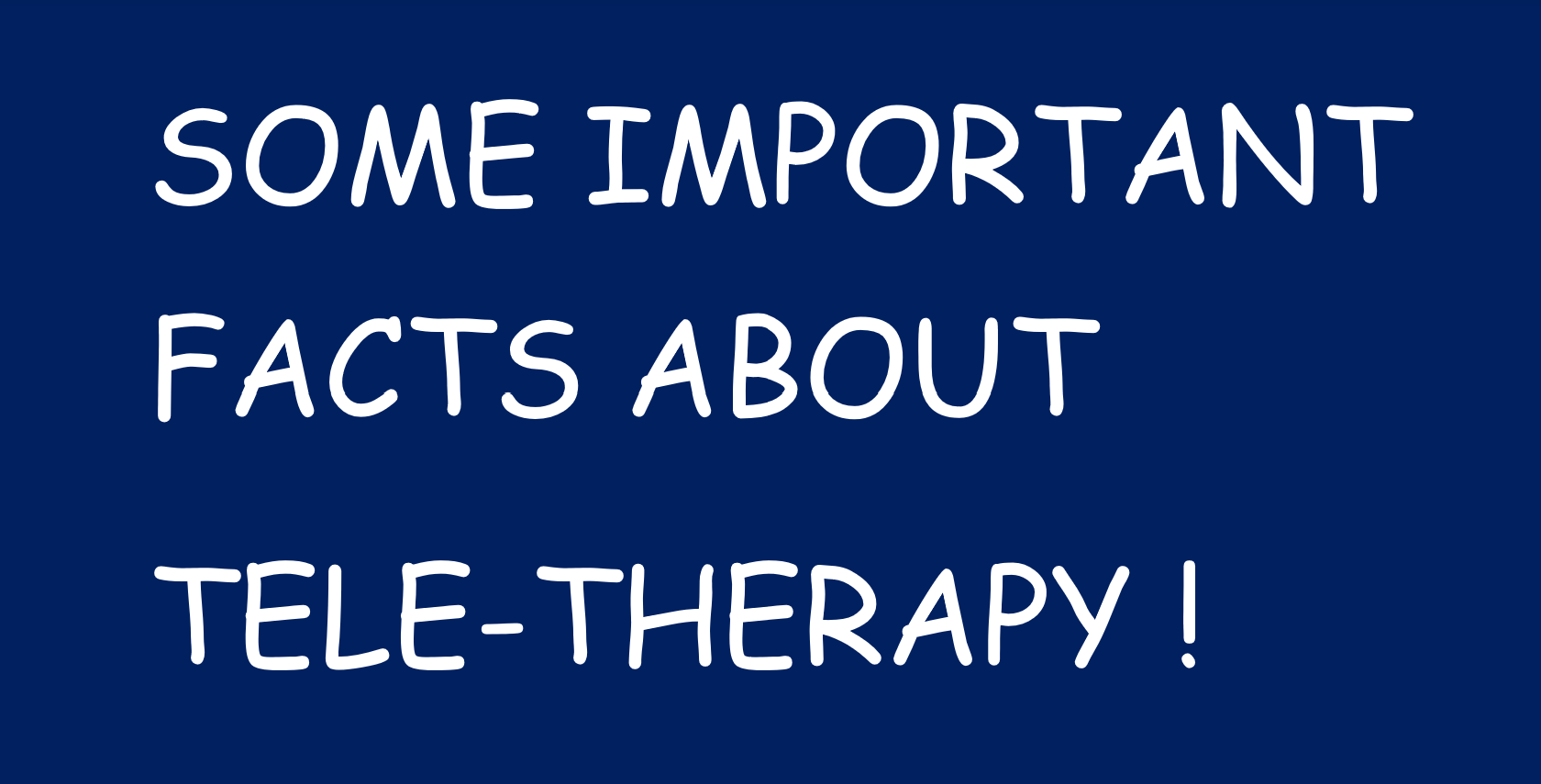
It’s time to clear up some misunderstandings and provide some important facts about tele-therapy. For those who are exhausted by the social restrictions imposed by COVID-19 and who are seeking counseling, it is understandable that they would want to see a counselor face-to-face. Others have questions about tele-therapy and are reluctant to give it a try. Unfortunately, because of safety issues concerning COVID-19, finding a therapist who does in-the-office visits may be difficult at this time. As such, I would like to clear the air and address some of these worries and misconceptions as well as to provide some important facts about tele-therapy. Here are some common concerns, advantages and limitations of remote counseling.
MISCONCEPTIONS ABOUT TELE-THERAPY
— It is new and untested. Actually tele-therapy has been around for over twenty years. In 1990 I provided couples counseling for the military via a video platform with a wife in my office and a husband who was stationed in Afghanistan. As for research, the Department of Defense has done careful studies which have revealed that there is no difference in outcome between face-to-face counseling and that done remotely. More recently, non-military studies have revealed the same results. Psychology at a Distance: Examining the Efficacy of Online Therapy (pdx.edu)
— I feel uncomfortable being on camera during the session. Both clinical research and my clinical experience with clients reveal that, although some folks may initially experience an awkwardness talking into a video camera or on the phone, an overwhelming majority report that the uneasiness quickly goes away. How to Actually Have a Successful Teletherapy Appointment (yahoo.com)
Actually, some clients have reported that they have become stressed from having to see themselves during a remote therapy session. This problem can be easily solved by simply turning off the self-on video screen view. In addition, others who have done telephonic sessions report that talking and opening up about difficult issues is easier when only voices interact and they are not seen.
— I worry about privacy and the security of tele-therapy sessions. It is important to know that the video platforms ( like Zoom) which are used by most therapist are HIPAA compliant and secure from hacking or eavesdropping. If you have any questions, ask your therapist if s/he has a “HIPAA business associate agreement” with the video program which its used for therapy sessions.
ADVANTAGES OF TELE-THERAPY
— Efficiency, Convenience, Flexibility: Not having to travel to a specific location can be a significant convenience. With traditional counseling appointments, obviously, clients must physically get to the therapist’s office which involves driving and sometimes dealing with traffic or bad weather. Teletherapy is not burdened by either of these concerns, and also saves all of the time and costs associated with travel.
— Accessibility: Tele-therapy provides increased accessibility in two important ways: 1) It eliminates accessibility issues for those who are mobility impaired and have trouble with stairs or who use wheel chairs; and 2) It removes the obstacle and inconvenience of long-distance travel for people who live in remote areas or who are home-bound. Also, therapy does not have to be interrupted by such things as illness , vacations or business travel.
— Safety: The most obvious benefit remote therapy provides for everyone, while we remain under the specter of COVID-19, is the protection from transmitting disease between therapist and client. Obviously this pertains to other forms of communicable diseases as well. COVID -19 UPDATE : 3/23/2020|Pastoral Counseling Syracuse NY (revmichaelheath.com)
LIMITATIONS OF TELE-THERAPY
— Insurance Coverage While some insurance companies have balked at reimbursing tele-therapy, most do. You should check with your insurance provider concerning your plan’s provisions for behavioral health services which are provided via tele-therapy .
— Interstate licensing Restrictions: If you are seeking tele-therapy from an out-of-state provider, please check with your therapist to see if s/he is licensed to practice in your state . Also check with your state’s insurance commission to see if the states involved have a reciprocal license agreement.
— Where hospitalization is required: Some rare situations which involve hospitalization and multiple providers may require in-person therapist availability. Please check with all persons involved to see if remote therapy would be problematic.
CONCLUSION:
Although there are some who still have concerns about tele-therapy , the advantages of doing counseling remotely clearly outweigh any difficulties and there is no significant reason not to try it. It is unlikely that tele-therapy will replace or eliminate in-person counseling but, due to its popularity, it looks like that it is here to stay and grow in popularity even beyond COVID’s threat. If you find a therapist you like who only does tele-therapy, as long as they are otherwise fully credentialed to provide counseling, there is no reason to think that the treatment would be second class or inferior to traditionally formatted therapies. Due to the extremely dangerous nature of the Delta variant , all counseling done by Pine Ridge will continue to be provided via tele-therapy. Although it is difficult to estimate or predict when it will be safe to resume in-the-office visits, a return is not in the immediate future . Rev. Michael Heath , LMHC, AAPC 8/01/2021


